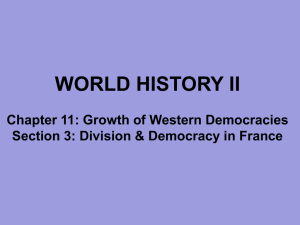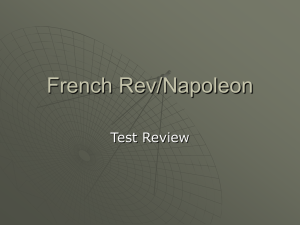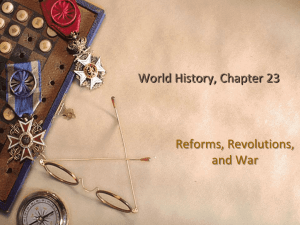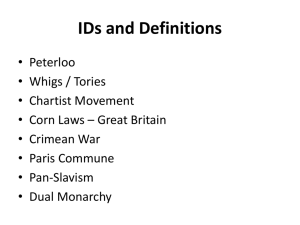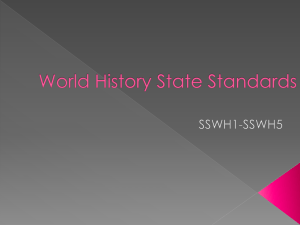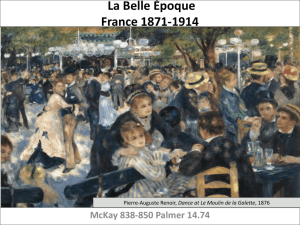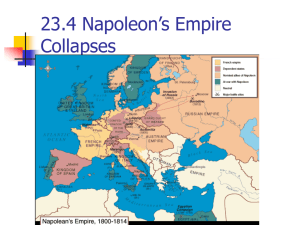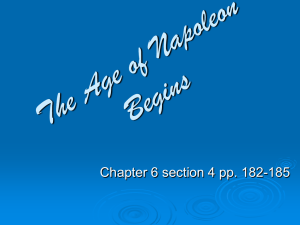FRANCE - Mentor Public Schools
advertisement
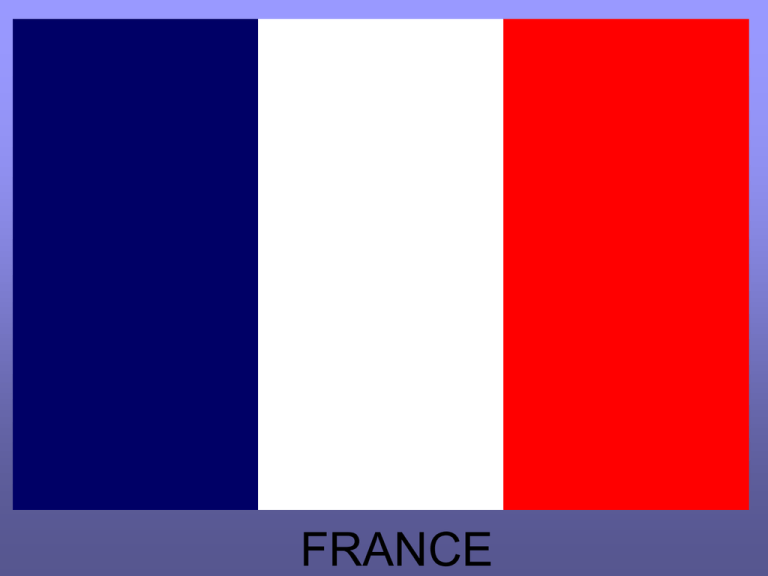
FRANCE NAPOLEON III AND THE SECOND EMPIRE • After being elected president of the Second Republic, Louis Napoleon quickly consolidated his power. Presenting himself as a man of the people, he dissolved the Chamber of Deputies over the issue of universal male suffrage. • In a coup d’etat in 1851, Napoleon rescinded the 1848 republican constitution. Became emperor in 1852 by plebiscite. NAPOLEON III AND THE SECOND EMPIRE • In 1852, Napoleon declared the Second Empire and himself Emperor Napoleon III. • Foreign adventures – disastrous – Loss of control over Italian and German unification – Failed effort to create an empire in Mexico NAPOLEON III AND THE SECOND EMPIRE • More successful internally in France • Economic Development – – – – Founded Credit Mobilier bank Built railways Promoted French industry Organized a professional and centrally controlled bureaucracy NAPOLEON III AND THE SECOND EMPIRE • Rebuilt the city of Paris – Napoleon hired architect and engineer Baron von Haussmann • Tore down old city walls and housing • Constructed modern sanitary system • Built grand boulevards • Built opera houses, theatres, and shopping centers NAPOLEON III AND THE SECOND EMPIRE • After 1860, Napoleon, faced with increasing criticism, allowed more reforms – More legislative input – Relaxed press censorship – Pursued a policy of free trade with Britain NAPOLEON III AND THE SECOND EMPIRE • Reforms could not save Napoleon from foreign policy failures. In 1870, he was captured by the Prussian army during the Franco-Prussian War. The empire ended. NAPOLEON III AND THE SECOND EMPIRE • Workers in the shiny new Paris refused to surrender and established the revolutionary Paris Commune, which harkened back to the principles of 1793 with its socialist program. • Eventually, a popularly elected Constituent Assembly crushed the Paris Commune and established the Third Republic. Yet another French republic thus started off with the taint of class violence and military failure. THE THIRD REPUBLIC • Moderate republicans crushed the revolutionary government of the Paris Commune and either shot of exiled 30,000 of its participants. By 1878 and after exploiting divisions in the royalist camp, moderates had succeeded in establishing the basis for a parliamentary democracy. • Nonetheless, important groups, such as the Catholic Church and monarchists, never reconciled themselves to the existence of a republican government, which they associated with the worst excesses of the French Revolution. THE THIRD REPUBLIC • Two important public scandals highlighted the divisions in the Third Republic. – Bringing together conservative elements and radical republicans who wished to avenge France’s recent defeat against Prussia, General Boulanger seemed poised to take over the government and establish military rule. However, Boulanger lost his nerve at the last minute and fled the nation THE THIRD REPUBLIC – The Dreyfus Affair proved even more serious and divisive. In 1894, a French military court found Captain Alfred Dreyfus, a Jewish officer, guilty of treason on very thin evidence. Despite indications Dreyfus was innocent and was the victim of anti-Semitism, he was sent to Devil’s Island, and the army refused to reopen the case. – Republicans and even foreign governments rallied to Dreyfus’s cause, which became the legal case of its day. THE THIRD REPUBLIC • French author Emile Zola condemned the authoritarian institutions in his pamphlet J’Accuse and made the issue a test of republican strength in France. • Eventually the government pardoned Dreyfus, but the fallout continued. • Republicans conducted an anticlerical campaign culminating in the complete separation of church and state in 1905 and the secularization of education by the state.
